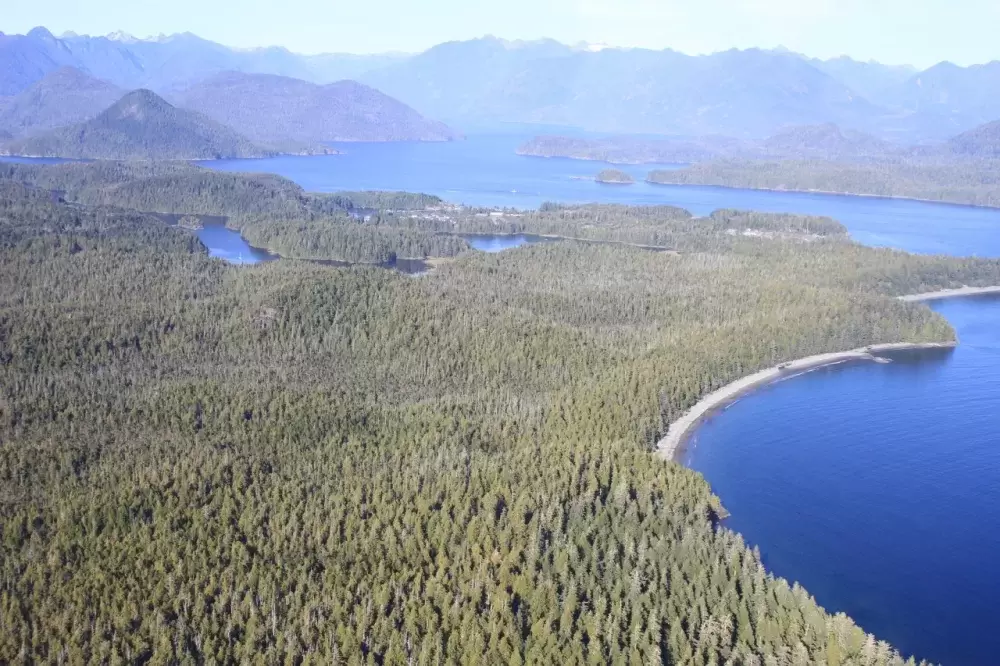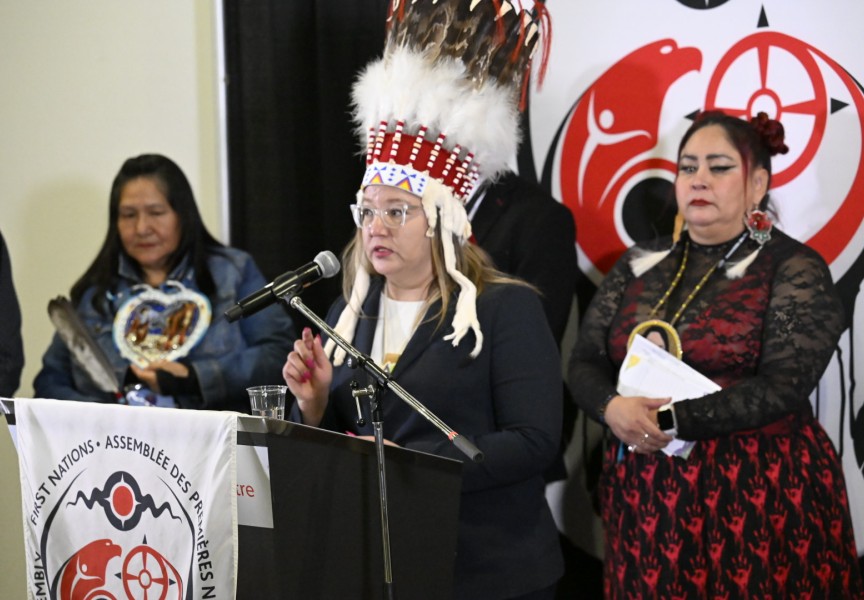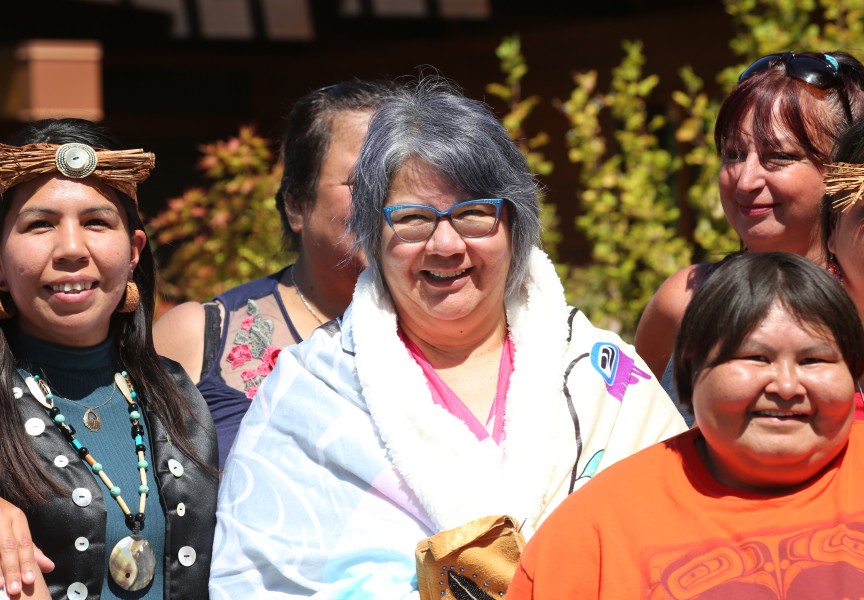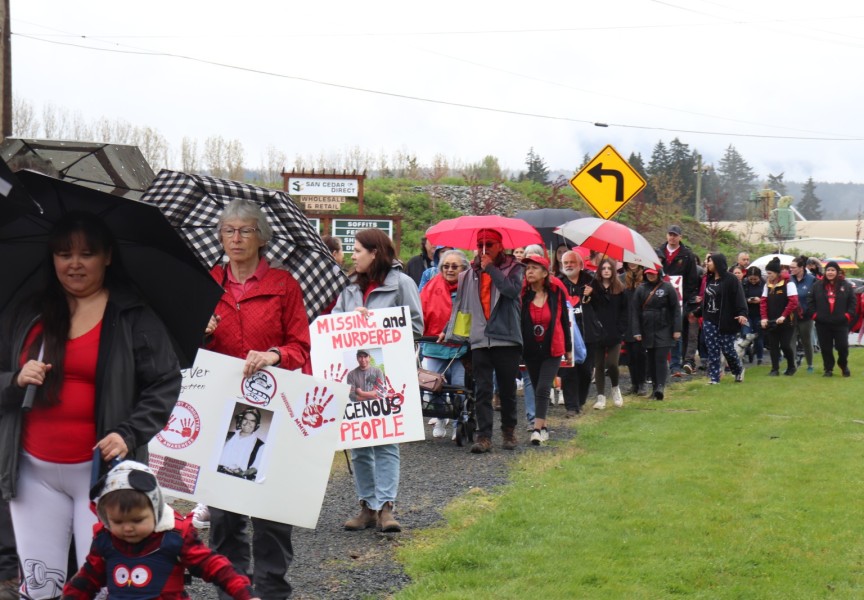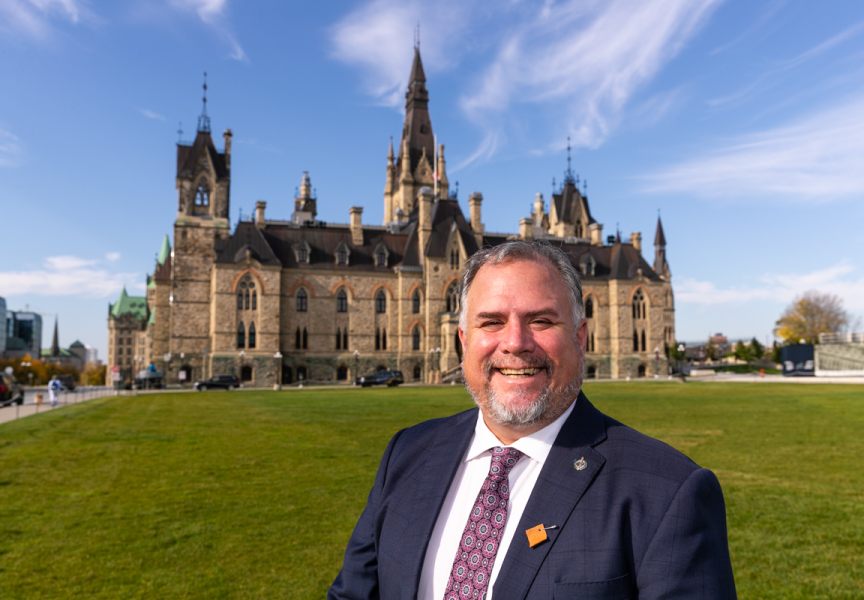It’s considered a major step in the right direction.
But Tyson Atleo, the community economic development lead for the Ahousaht First Nation, believes more co-operation is still required.
Officials from the federal government announced this past week that they would provide $100 million in funding, through the country’s Natural Heritage Conservation Program, to protect 120,000 hectares of land in Clayoquot Sound, on Vancouver Island’s west coast.
This includes land on a pair of Nuu-chah-nulth First Nations, the Ahousaht First Nation and the Tla-o-qui-aht First Nation.
“I think it’s a wonderful effort,” Atleo said of last week’s announcement. “It’s meaning for us is that it suggests we’re doing something right. We’re on the right path.”
The federal announcement was welcome as it indicates officials, at least at the national level, are keen to see Indigenous representatives develop and further their own land.
Atleo, however, said Indigenous leaders are still waiting for political leaders from their own province to adopt a similar thinking.
“We’ve been at it for years,” he said. “What we need is the B.C. government to come on board for this. What we’re trying to achieve is changes to forestry tenures. We’re looking for forestry tenure reform by 2022, or faster than that.”
Officials from Nature United, a Canadian conservation organization, also believe the federal commitment announced this past week is a positive move.
“Indigenous nations are the best positioned to protect and care for their lands and waters, where they have lived for thousands of years,” Hadley Archer, Nature United’s executive director, said in a news release. “This visionary federal funding will support the Ahousaht and Tla-o-qui-aht First Nations in protecting Clayoquot Sound and we are proud to partner with them to support their visions for their territories.”
The news about federal funding prompted Lewis George, the hereditary chief of the Ahousaht First Nation, to issue a rare public comment.
“On behalf of the Ahousaht Ha’wiih (Hereditary Chiefs) and all of our Ahousaht membership, I want to express my sincerest appreciation to the federal government and Nature United for recognizing the importance of protecting our Hahoulthee (lands and waters),” he said. “Our approach to stewardship of our Hahoulthee is critical for us not to leave a negative footprint for the seven generations that will follow us. Today is a wonderful day to celebrate Indigenous values.”
Atleo said the news is obviously significant as it generated a response from George.
“Lewis is a real inspirational leader,” Atleo said. “He has the wellbeing and future of his people first and foremost in his mind. It’s powerful for him to make a public comment.”
Saya Masso, the Tla-o-qui-aht First Nation’s manager of lands and resources, was also pleased to hear about the commitment from federal officials.
“We’re very excited about the announcement and how it will facilitate improvements over land use plans,” he said.
While the federal government pledged $100 million in funding for the local land protection, officials with both the Ahousaht First Nation and the Tla-o-qui-aht First Nation are unsure how much of this money they will receive.
Another announcement is expected soon to provide additional details.
“We’re hoping to be hearing about the amount of the contributions in the next week or so,” Masso said. “We’re ready to get on with implementations. But we need implementation money to do that. And I’m not sure how much we’ve been awarded.”
As a result, Masso said his First Nation cannot announce just yet what new land use plans it has.
Atleo echoed this sentiment.
“We applied for about $7 million,” he said. “But we don’t know how much will be allocated to us.”
The funding announcement will also help federal officials in their quest to conserve 17 per cent of land and 10 per cent of oceans in Canada by 2020.
According to a media release from Nature United announcing the federal funding, Clayoquot Sound is the last remaining great rainforest on Vancouver Island. More than three-quarters of the island’s old growth forests have been logged, stated the organisation.
Clayoquot Sound is also where the famous War in the Woods protests took place in 1993. Hundreds, who were trying to protect Clayoquot Sound from logging, were arrested for their protests.

